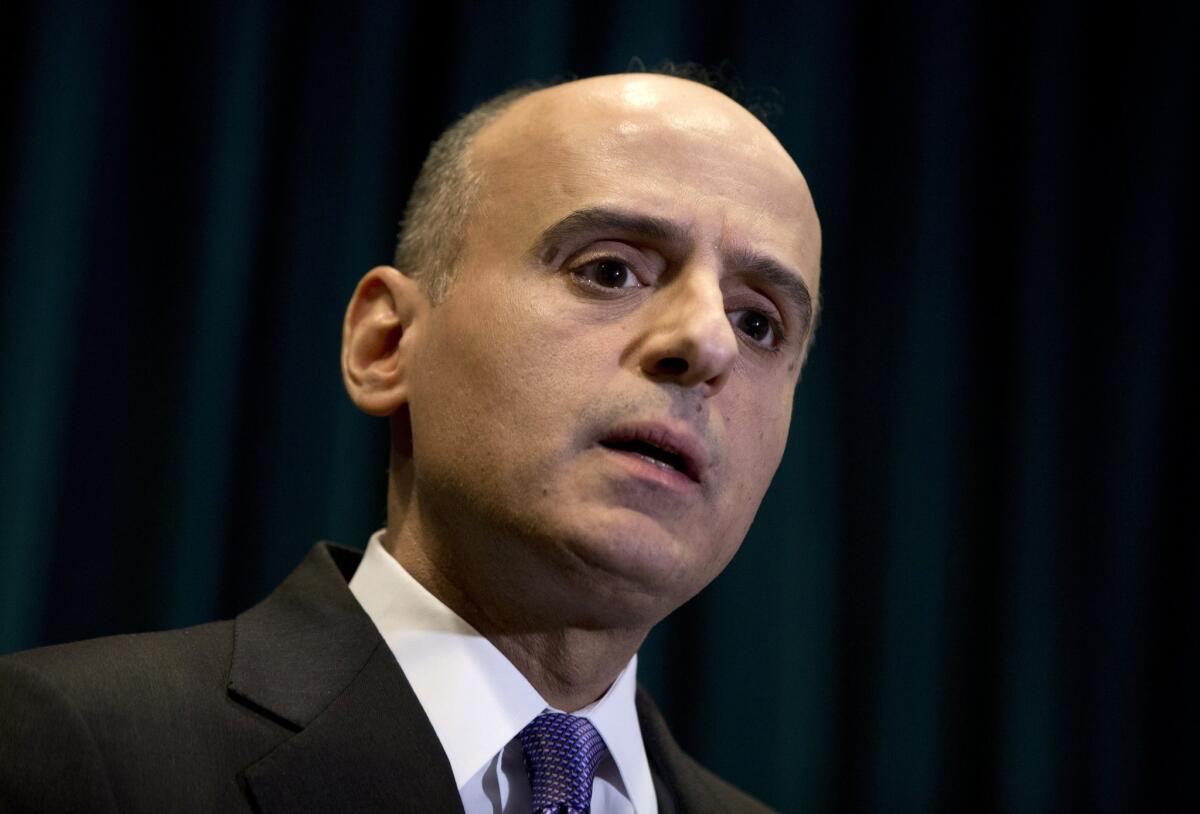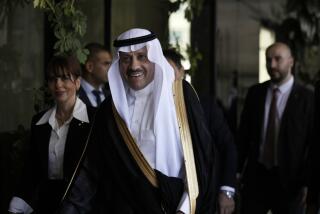Iran nuclear deal: Saudi envoy shores up regional support for the pact

- Share via
Reporting from Washington — A top Saudi envoy appeared to give the White House support Monday for the nuclear framework deal with Iran, apparently bringing a powerful regional ally into the fold as the White House seeks to shore up regional support.
Adel Jubeir, Saudi Arabia’s ambassador to the United States, said Monday that he is optimistic the deal will be concluded to place strict limits on Iran’s ability to enrich uranium and conduct other nuclear activities for at least a decade.
“We hope there will be a deal based on the principles that the U.S. government has articulated to us,” he told reporters.
Jubeir said Riyadh will back an agreement that subjects Iran, its traditional rival, to “strict, intrusive and unprecedented inspections” and keeps severe economic sanctions in place until Iran proves it is abiding by its obligations under the deal.
“What we’re hearing is that the sanctions will be eased gradually, depending on Iran’s implementation of any agreement that is reached, but we haven’t seen the scheduling,” he said. “We need more specificity in terms of restrictions and we need more specificity in terms of the inspections processes.”
He said it was premature to discuss details of the proposed deal because negotiations will try to fill in many of the specifics by June 30.
“In terms of principles, we hope this will prevent Iran from having an atomic weapon,” Jubeir said.
The White House has been eager to win Saudi support, and senior aides worried that the kingdom would line up with Israeli Prime Minister Benjamin Netanyahu in fierce opposition to the proposed resolution of the nuclear standoff.
After diplomats from six world powers and Iran wrapped up their talks in Switzerland on Thursday, President Obama called Saudi King Salman to brief him on the details. The president called Netanyahu later from Air Force One.
Obama has invited the leaders of other Persian Gulf countries to a meeting this spring at Camp David, the presidential retreat in Maryland, in hopes of winning their support as well.
Israel remains adamantly opposed to the deal. Appearing on TV talk shows Sunday, Netanyahu warned that the nuclear deal “will spark a nuclear arms race among the Sunni countries in the Middle East.”
The Saudi ambassador declined to comment when asked whether Saudi Arabia was interested in pursuing a nuclear program.
Easing the threat of a nuclear Iran is necessary to ensure regional stability, Jubeir said. Tehran has sought to expand its influence in the Middle East by supporting Shiite militias and other proxy forces in Yemen, Syria and Iraq, he said.
More to Read
Sign up for Essential California
The most important California stories and recommendations in your inbox every morning.
You may occasionally receive promotional content from the Los Angeles Times.











